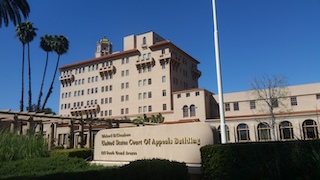On May 17, 1991, Teresa Holloway’s body was found off Highway 163 in San Diego County. The cause of death was determined to be “blunt force head injuries and strangulation.”
Police were able to trace back the evidence to Robert Jurado and his roommate, Denise Shigemura. The had a plan to kill a drug dealer named Doug Mynatt, with whom Jurado and Shigemura had an ongoing dispute. Jurado and Shigemura then became concerned that Holloway, Mynatt’s former roommate, knew their plan and would alert Mynatt. Therefore, they decided to kill Holloway and did so to preserve their ability to also kill Mynatt later.
Jurado was interviewed by police soon after the murder and he confessed to killing Holloway, cooperated with police and took police to the scene of the crime where they found the tire jack that he had used to beat Holloway while strangling her with an 18-inch weed-eating cord.
Jurado was indicted in San Diego Superior Court on one count of conspiracy to commit murder and one count of first degree murder committed while lying in wait, a special circumstance that made him eligible for the death penalty.
Jurado was tried separately from Shigemura. The jury convicted him of first degree murder and determined that death was the appropriate penalty. After denying a motion for new trial and to modify the verdict, the trial court judge sentenced Jurado to death.
 Ninth Circuit Court of Appeals Pasadena
Ninth Circuit Court of Appeals Pasadena
During the penalty phase of the trial, defense counsel sought to admit a videotape of the confession Jurado gave to the police. The video showed Jurado wept as he admitted to murdering Holloway. It also showed, when asked if he was injured, Jurado responded, “[t]he only injury I got is from my just from my conscience.”
Defense counsel asserted that this evidence of remorse was needed to rebut the prosecution’s evidence that after Jurado was arrested, he called a friend from jail and sang “on, on, the bitch is gone” to the tune of a rap song, and said that he did not care if he had to spend the rest of his life in prison because “it was worth it.”
The trial court judge refused to admit the videotape because the statements made on the videotape were deemed inadmissible hearsay and that no applicable hearsay exception applied. The trial court also determined that the circumstances of the interrogation of Jurado lacked indicia of trustworthiness.
The California Supreme Court affirmed the judgment in People v. Jurado (2006) 38 Cal. 4th 72. Jurado then petitioned for writ of certiorari to the United States Supreme Court, who denied his petition in Jurado v. California (2006) 549 U.S. 956. While his direct appeal was pending, Jurado filed a state habeas petition to the California Supreme Court, which was denied without an evidentiary hearing.
The scope of this article deals with his second amended federal habeas petition, which the United States District Court for the Southern District of California denied. Jurado then appealed this ruling to the U.S. Court of Appeals for the Ninth Circuit in Pasadena in Robert Jurado v. Ronald Davis, Warden, San Quentin State Prison.
The Ninth Circuit made it clear from the outset that its review was de novo for any clear error of any factual findings made by the district court. Hurles v. Ryan (9th Cir. 2014) 752 F.3d 768, 777. The Ninth Circuit would also apply the abuse of discretion standard for evaluating the propriety of the district court’s decision not to conduct an evidentiary hearing. Stanley v. Cullen (9th Cir. 2011) 633 F. 3d 852, 863.
Furthermore, because Jurado’s petition was filed in the district court after the effective date of the Antiterrorism and Effective Death Penalty Act of 1996 (AEDPA), the Ninth Circuit stated “we may grant habeas relief only if the state court’s decision (1) ‘was contrary to, or involved an unreasonable application of, clearly established federal law, as determined by or Supreme Court . . . .; or (2) resulted in a decision that was based on an unreasonable determination of the facts in light of the evidence presented in the State court proceeding.” Davis v. Woodford (9th Cir. 2004) 384 F. 3d 628, 637 (quoting 28 U.S.C. § 2254(d)).
The Ninth Circuit affirmed the U.S. District Court, holding that a defendant’s right to present relevant evidence is not unlimited, but instead is subject to reasonable restrictions such as the requirement that certain evidence can be excluded if it is not sufficiently reliable.
We present this summary as an example of a court excluding evidence that we certainly thought was relevant and which may have saved Jurado from the death penalty, but the state court judge in San Diego Superior Court determined was unreliable as inadmissible hearsay not made admissible through any hearsay exception.
The citation for the U.S. Court of Appeals for the Ninth Circuit ruling discussed above is Robert Jurado v. Ronald Davis (9th Cir., 2021) 12 F. 4th 1084.
For more information about evidence authentication issues, please click on the following articles:
 Ninth Circuit Court of Appeals Pasadena
Ninth Circuit Court of Appeals Pasadena